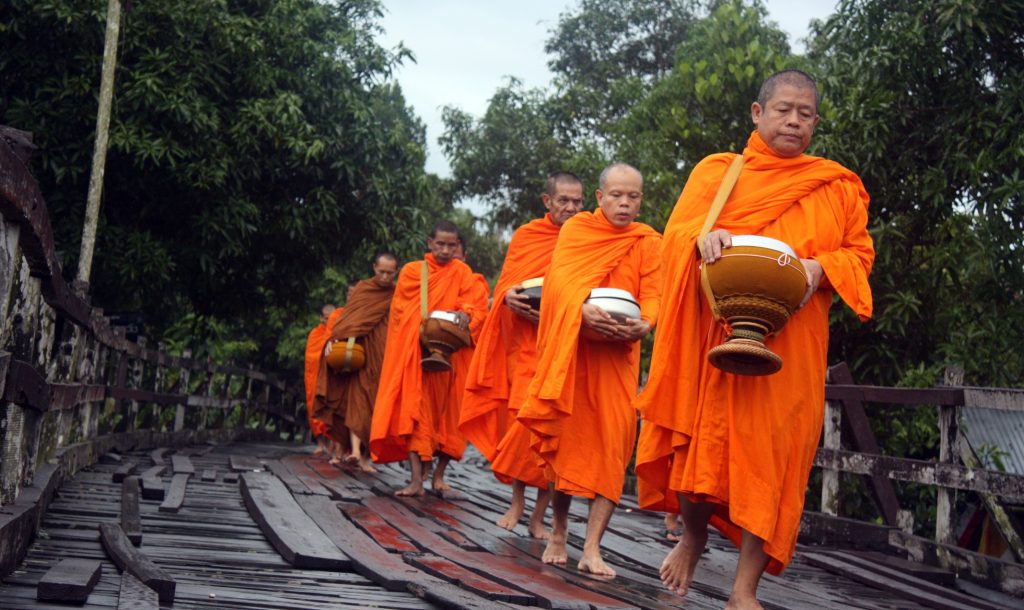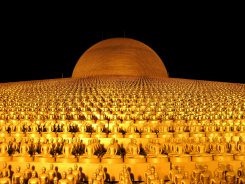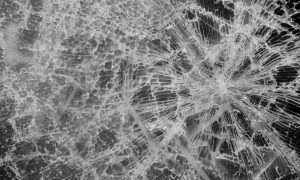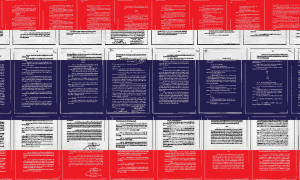The early morning of 24 May 2018 was the morning of long knives for the Thai Sangha. Commandos stormed Or-Noi Temple to arrest the abbot, Buddha Issara, a staunch supporter of the NCPO. In an unrelated case, five other senior monks were arrested from three famous temples in Bangkok. Two remain on the run. This is the purge of a lifetime. Never have there been such high-profile arrests and so many prominent monks falling from grace.
The Thai Sangha has long suffered from falling public trust. Can these two incidents help restore its faded aura? Or do they reveal a deeper crisis in not only the Sangha, but also the leadership of the National Council of Peace and Order (NCPO). The persecution of one of the junta’s most outspoken supporters demands explanation.
Buddha Issara is no stranger to press. He led a militia-style mob during the 2014 Bangkok Shutdown campaign, occupying the road in front of a government complex and the Army Headquarters north of Bangkok. His heavily armed guards fought with riot police, detained intelligence officers and assailed bystanders, inflicting terror, injuries and even death. He raided a TV station and a hotel to extort money. Later, Buddha Issara staged mass protests demanding that the US Ambassador be recalled for criticising the junta.
The abbot’s impunity despite outrageous crimes has convinced the public that he enjoys the NCPO’s support, as confirmed by photos of military generals paying homage to him on several occasions. This time, though, he was on the receiving end of the NCPO’s wrath. He has been charged with assault, extortion and unauthorised use of the royal seal for amulets. For this last act, he was fortunate enough not to be charged with lese majeste.
The other five senior monks have been involved in more sophisticated, but more typical, crime. These monks held key positions in the Sangha administration and served as dhamma instructors to younger monks. Phra Phrom Dilok was an abbot of Sam Phraya Temple. Phra Atthakit Sophon was his secretary. Three deputies of Wat Sa Ket, known for its landmark Golden Mountain, were caught while the abbot, Phra Phrom Sitthi, fled. Another fugitive is the Deputy Abbot, Phra Phrom Methee, of Wat Samphanthawong. These are prestigious temples under royal patronage.
For years, these temples had embezzled hundreds of millions of baht from the Temple Education Fund. Investigations revealed that money was transferred into a fake bank account, some of which was used to pay for sexual services. While Thais are familiar with the financial and sexual scandals of monks, the scale and magnitude of the case stunned the public. The court denied bail to all six monks. In accordance with Sangha law, they were defrocked before being sent into jail. This archaic rule is to protect the integrity of the saffron robe, making sure that it never touches a jail.
A shake-up is needed if the Sangha is to restore its credibility. A purge would not be unheard of. According to Buddhist belief, everything degenerates over time. From time to time, Buddhist kings exercise their power to purify the Sangha, halting the degeneration process. Purification can involve revisions in the Buddha’s teaching, the book of Tipitaka. Rama I, the founder of Bangkok and the Chakri dynasty, ordered the recension of Tipitaka and promulgated ten rules on the conduct of monks (Kod Mai Pra Song).
But on other occasions, force is invoked. King Asoka of Maurya India set an example when he tried and executed monks who failed to satisfy his standard of Buddhist knowledge and behaviour. King Taksin, of the Thonburi dynasty, did the same.
Actions to purify the Sangha are more common in a regime whose power is yet to be consolidated (Taksin fresh after the fall of Ayutthaya, and Rama I after founding the new dynasty of Chakri). The duty is shouldered by modern governments too. Their upkeep of Buddhism earns them the Sangha’s moral endorsement of the regime in return.
But purification often masks a political motive. In early 2017, after the death of the beloved King Bhumibol, the NCPO applied a final solution to the struggle over the Sangha Raja vacancy (the previous Sangha Raja, Somdej Phra Yanasangvorn, had died a few years earlier). The NCPO blocked the Sangha Council’s nomination of Somdej Phra Maha Rajjamangalacharn (Somdej Chuang), due to Chuang’s affiliation with the controversial Dhammakaya Temple.
Dhammakaya, a consumerist heretic sect, was not only one of the largest contemporary Buddhist movements, it also allegedly supported Thaksin Shinawatra. The Sangha law was amended and a new Sangha Raja with no Dhammakaya connection, Somdej Phra Maha Muniwong, was appointed. Soldiers then broke into Dhammakaya Temple and Thammachaiyo, the abbot, fled a fraud charge, ending the two-year feud.
Can Thailand tolerate more than one form of Buddhism?
What anti-Dhammakaya sentiment says about Thai political authorities and Buddhism.
The motives behind the case of Buddha Issara are more puzzling. Since he sided with the NCPO, he is naturally an enemy of both Dhammakaya and Thaksin. He was very active in inciting hatred and the use of deadly force against the temple. But he is different from other famous monks, who are usually seen as possessing magical charisma. Buddha Issara is admired for his political views, not celestial power—he is a mercenary, a hired gun, with no spiritual backup. This less austere status makes him more vulnerable.
As Buddha Issara became more outspoken and controversial, the cost of aligning with him might have exceeded the benefits for the NCPO. As a liability, he was dealt with the same way Sondhi Limthongkul was silenced by a failed assassination after the 2006 coup. Perhaps, spectators observe, Buddha Issara has been strategically sacrificed to divert media attention from the more embarrassing embezzlement case. This arrest would make the government appear impartial too.
Still, so much remains unexplained. A few hours after the arrest, video footage of the operation was released online. This footage was definitely intended to humiliate Buddha Issara. Furious followers, almost all of them also supporters of NCPO, slammed the government for inappropriate treatment of their revered master. The baffled NCPO quickly apologized.
For the junta, the operations against the monks might not be helpful after all. Thailand is so polarised that purification attempts may muddle the situation further. Dhammakaya is a highly politicised topic and it has become a symbolic battle between the NCPO and Thaksin’s supporters. Resentment still lingers so the arrest of the five monks only adds insult to injury.
Most importantly, intervening in Sangha politics depends on more than law. It requires an extra-legal qualification known as barami (charisma). Barami means the possession of desirable virtues such as piety, tolerance, integrity and generosity. Not every ruler can detain a monk without consequences. The limits are set by public opinion. If a leader is unwise, violent or selfish, purification easily turns into harassment.
Prayuth is certainly not a man of great barami. His government is corrupt, cruel and incompetent. Disciples of the accused senior monks point out that the Director of the National Office of Buddhism, who spearheaded the embezzlement investigation, has himself misused state temple funds money to fund a trip with his wife abroad. Incidents of this kind badly delegitimise the NCPO’s investigations into the Sangha.
Despite the arrested monks’ serious crimes and breaches of the monastic code, the Sangha Council itself never acted seriously against them. Only after the arrests were made did the Sangha Raja dismiss the detained monks from the council and recall honorific titles. The Sangha Council has neither praised nor condemned the raids. The current Sangha Raja is well-liked for his exemplary behaviour and knowledge in Dhamma. But his quietness sends an ambiguous signal. It may imply the Sangha Council’s approval of the government’s intervention, which allows the Sangha Council to appear neutral while the government does the unpleasant job of cleaning up the Sangha.
But acquiescence may suggest a lack of leadership, a skill much needed if the Sangha wishes to restore public faith in the body. Many monks assert that the temporal government cannot sanction members of the spiritual realm. Yet there have been growing calls from within the Sangha for greater state support to halt the deterioration of social morality. As a rule, support always comes with control. How can the Sangha expect a close, deeper and more intimate relationship with the NCPO without forsaking autonomy?
Thai Buddhism needs more than just two high-profile arrests to successfully reform itself. The Sangha is still divided over temporal politics. Evidently, the Sangha’s leaders lack the courage to weed out rogue monks by themselves. They have placed the issue in the hands of the junta, whose legitimacy is in tatters and commitment to reforming Buddhism questionable.
 Facebook
Facebook  Twitter
Twitter  Soundcloud
Soundcloud  Youtube
Youtube  Rss
Rss 



